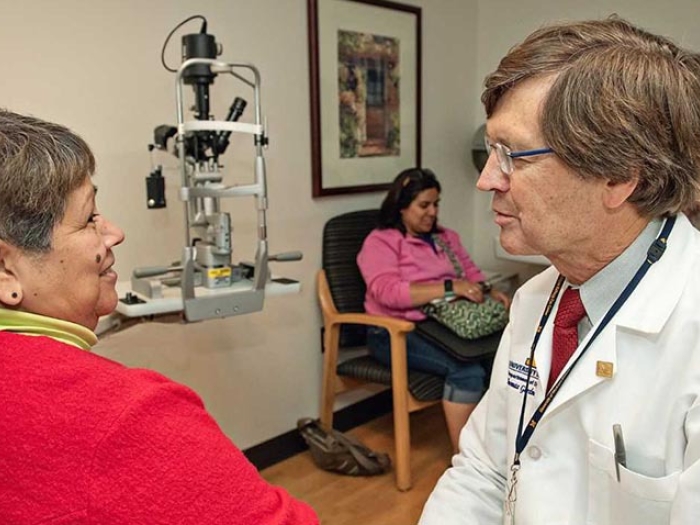The more chronic conditions a person has, the higher their odds of having unpaid debts, poor credit scores and bankruptcy, large analysis of medical and financial records finds.
5:00 AM
Author |

Being in "poor health" is far more than just a saying, according to a University of Michigan study.
In fact, adults' risk of serious financial problems rises directly with the number of chronic health conditions they have, the study of nearly 3 million privately insured adults finds.
They didn't need to have rare conditions, either. The study focuses on relatively common long-term conditions, including high blood pressure, diabetes, depression, cancer, dementia, stroke, substance use disorders and common ailments of the heart, lungs, kidneys and liver.
The more of these conditions someone had, the higher their odds of being late on credit payments, having poor credit scores, having a collection agency get involved in debts from unpaid medical or other bills, or going through bankruptcy.
In all, people who had seven or more of these conditions had three to four times the risk of each of these financial calamities, compared with those who had no chronic conditions, according to the findings published in JAMA Internal Medicine.
And for the 10% of people who had medical debts in collections, the study shows which conditions were linked with the highest debts. Stroke, serious mental illness such as schizophrenia, and substance use disorders topped the chart.
Nora Becker, M.D., Ph.D., and colleagues from the U-M Institute for Healthcare Policy and Innovation used health insurance claims data from Michigan residents over the age of 20 covered by private health insurance, linked to data from the same individuals' financial histories.
This is among the first uses of this kind of data linkage to study the financial health of such a large group of people and conditions.
SEE ALSO: How Medicaid Expansion Gave Enrollees a Major Financial Boost (uofmhealth.org)
"After controlling for age and gender, the rates of adverse financial outcomes rose dramatically in a 'dose-dependent' way, based on someone's overall chronic disease burden," Becker explained. "These findings are consistent with survey data on financial distress associated with specific conditions, such as various forms of cancer. But this claims-based approach gives us a detailed measure of each person's overall chronic disease burden in a very large group. To see such a strong relationship was very striking."
Like Podcasts? Add the Michigan Medicine News Break on Spotify, Apple Podcasts or anywhere you listen to podcasts.
Becker, an internal medicine physician and health economist, worked with IHPI director John Z. Ayanian, M.D., M.P.P., and others at IHPI on the analysis of data obtained from Blue Cross Blue Shield of Michigan and the Experian credit monitoring bureau. The data were anonymized and securely accessed via the Michigan Value Collaborative to ensure that none of the patients included in the study could be identified.
The current paper focuses on a snapshot in time of each person's financial situation in January 2021, and diagnoses based on an analysis of their insurance claims from the two previous years. Becker and colleagues are now working to analyze more credit-reporting periods and clinical populations.
The large sample size means that it's possible to see effects even for smaller groups of people with a large number of chronic conditions – such as the 5.4% who had four to six of the conditions, and even the 1% who had seven to 13 of them.
The rates of adverse financial outcomes rose dramatically in a 'dose-dependent' way, based on someone's overall chronic disease burden.Nora Becker, M.D., Ph.D.
It also allowed the study team to see the outsized medical debt in collections among the 0.3% who had serious mental illness, the 1% who had had a stroke, and the 2% who had a substance use disorder.
Three-quarters of those in the study were age 20 to 64, and those over age 65 either had employer-based coverage or a Medigap plan, but not a Medicare Advantage PPO. The study did not include people covered by Medicaid, but other work by IHPI member and U-M Ross School of Business researcher Sarah Miller, Ph.D., has looked at their financial health.
Becker notes that the data used for the new study can't show the researchers which came first, the health conditions or the poor financial outcomes, or how they intertwined over time.
But in this sample of mainly working-age employed adults, she noted, "We know that certain conditions have high out-of-pocket costs, while other conditions make it so that you have trouble working, reducing income and financial well-being. We also know that some of these conditions are worsened or accelerated by not attending to your health in your younger years, or may only be diagnosed during a medical crisis – and these may also be affected by a person's income and financial state."
The study data also don't show which of the individuals had high-deductible health plans, in which the first few thousand dollars of health costs are paid by the individual each year, except for certain preventive services. About half of all Americans covered by an employer-based plan have high deductibles on their insurance.
Live your healthiest life: Get tips from top experts weekly. Subscribe to the Michigan Health blog newsletter
Headlines from the frontlines: The power of scientific discovery harnessed and delivered to your inbox every week. Subscribe to the Michigan Health Lab blog newsletter
In addition to Becker and Ayanian, the study's authors are IHPI members John W. Scott, M.D., M.P.H.; Michelle H. Moniz, M.D., M.Sc.; and Erin F. Carlton, M.D., M.Sc.
The Michigan Value Collaborative is funded by Blue Cross Blue Shield of Michigan through its Collaborative Quality Initiatives, part of its Value Partnerships program.
Citation: "Association of Chronic Disease With Patient Financial Outcomes Among Commercially Insured Adults," JAMA Internal Medicine. DOI: 10.1001/jamainternmed.2022.3687

Explore a variety of health care news & stories by visiting the Health Lab home page for more articles.

Department of Communication at Michigan Medicine
Want top health & research news weekly? Sign up for Health Lab’s newsletters today!





